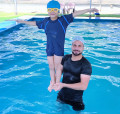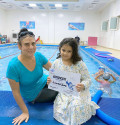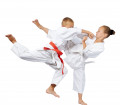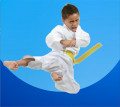
Karate, which translates to empty hand is a Japanese martial art
2024-03-31 - karateIntroduction to Martial Arts
Martial arts have long been revered for their disciplined
techniques and philosophical underpinnings. Originating from various regions
across the globe, martial arts encompass a wide array of combat practices, each
with its own unique principles and methodologies.
What is Martial Arts?
Martial arts are codified systems and traditions of combat
practiced for various reasons such as self-defense, physical fitness, mental
development, and spiritual growth. These systems often involve a combination of
striking, grappling, and weapon-based techniques.
Brief History of Martial Arts
The history of martial arts is rich and diverse, with roots
tracing back thousands of years to ancient civilizations such as China, India,
Greece, and Japan. Over time, martial arts evolved and spread across different
cultures, shaping and influencing countless other disciplines and practices.
Introduction to Karate
Among the myriad of martial arts, Karate stands out as one
of the most popular and widely practiced disciplines worldwide.
What is Karate?
Karate, which translates to "empty hand," is a
Japanese martial art characterized by striking techniques using the hands,
feet, elbows, and knees. It emphasizes powerful, precise movements and
incorporates elements of self-discipline and mental focus.
Origin of Karate
Karate's origins can be traced back to the Ryukyu Kingdom
(present-day Okinawa, Japan),where indigenous fighting methods merged with
Chinese martial arts influences. Over time, Karate evolved into distinct
styles, such as Shotokan, Goju-Ryu, and Wado-Ryu, each with its own unique
techniques and philosophies.
Importance of Straight Kick in Karate
In the vast arsenal of Karate techniques, the straight kick
holds a special significance due to its effectiveness and versatility in combat
situations.
Basic Overview of the Straight Kick
The straight kick, also known as "mae geri" in
Japanese, involves extending the leg forward to strike the opponent with the
ball of the foot or the heel. It is a fundamental technique that forms the
basis of many advanced kicking techniques in Karate.
Why the Straight Kick is Important in Karate
The straight kick serves as a crucial tool for maintaining
distance, disrupting an opponent's balance, and delivering powerful strikes
with precision. Its simplicity and efficiency make it indispensable for
practitioners of all levels.
Techniques for Learning the Straight Kick
Mastering the straight kick requires a combination of proper
form, technique, and consistent practice.
Proper Stance
Before executing the straight kick, it is essential to adopt
a stable and balanced stance, with the feet shoulder-width apart and knees
slightly bent. This provides a solid foundation for generating power and
maintaining mobility.
Correct Foot Positioning
When performing the straight kick, the striking foot should
be chambered close to the body, with the knee raised towards the chest. This
allows for a quick and fluid extension of the leg, maximizing the impact of the
kick.
Execution of the Kick
To execute the straight kick effectively, extend the leg
forward in a swift and controlled manner, keeping the foot flexed and the toes
pointed towards the target. Aim to make contact with the ball of the foot or
the heel, depending on the intended target area.
Benefits of Practicing the Straight Kick
Beyond its practical applications in combat, the straight
kick offers a myriad of physical and mental benefits for Karate practitioners.
Maintaining proper posture is crucial for executing the
straight kick with power and precision. Avoid leaning back or leaning too far
forward, as this can compromise your balance and diminish the impact of the
kick.
Conclusion
Mastering the straight kick in Karate is a rewarding journey
that requires dedication, perseverance, and attention to detail. By honing your
technique and understanding the principles behind this fundamental technique,
you can unlock new levels of skill and proficiency in your martial arts.







.jpg)











































































































































































































